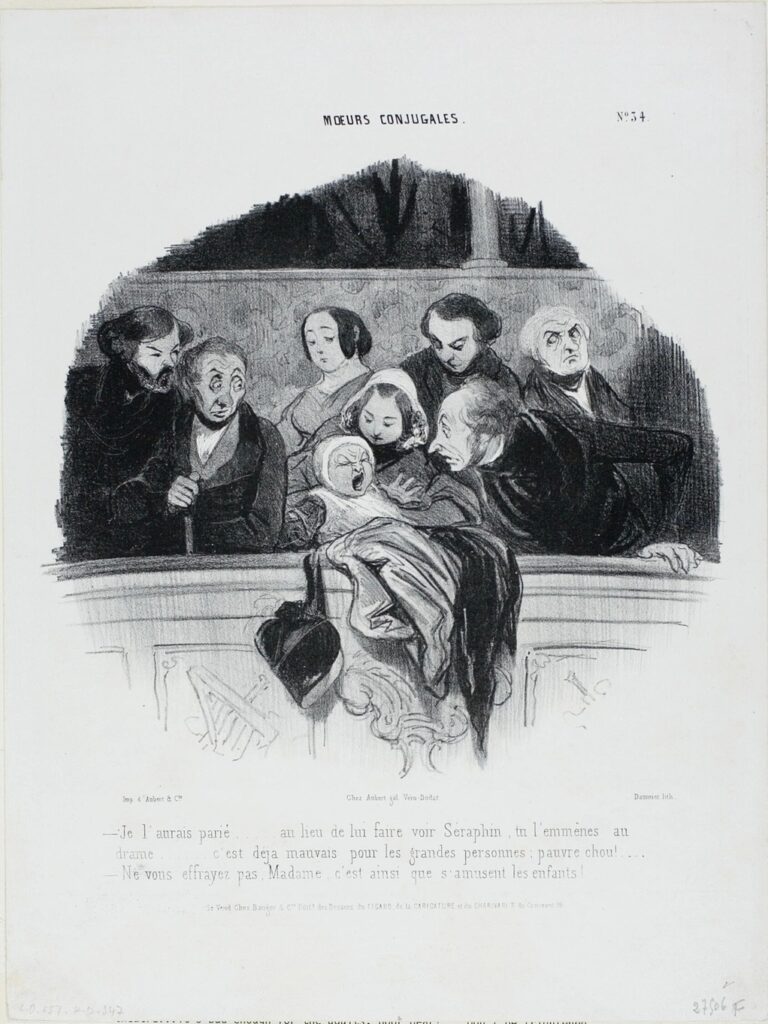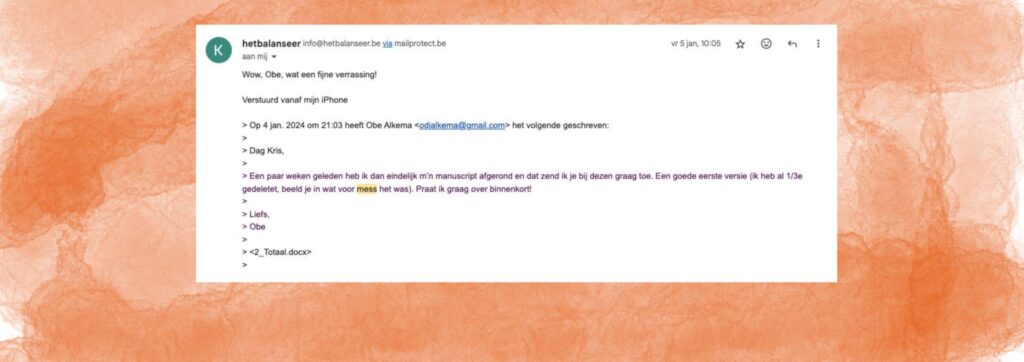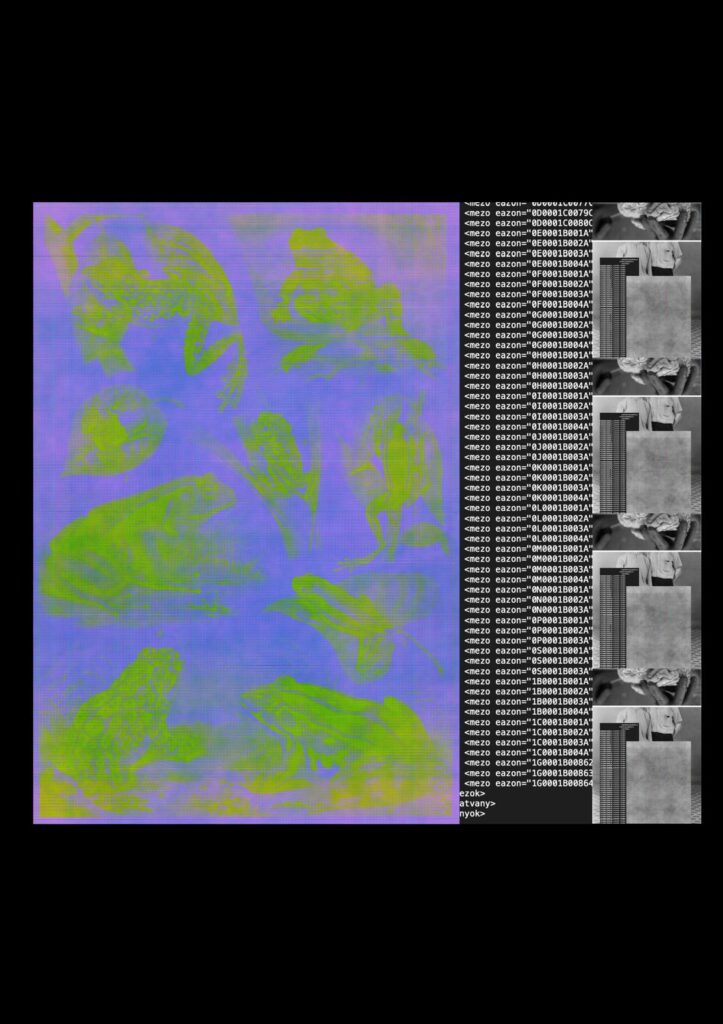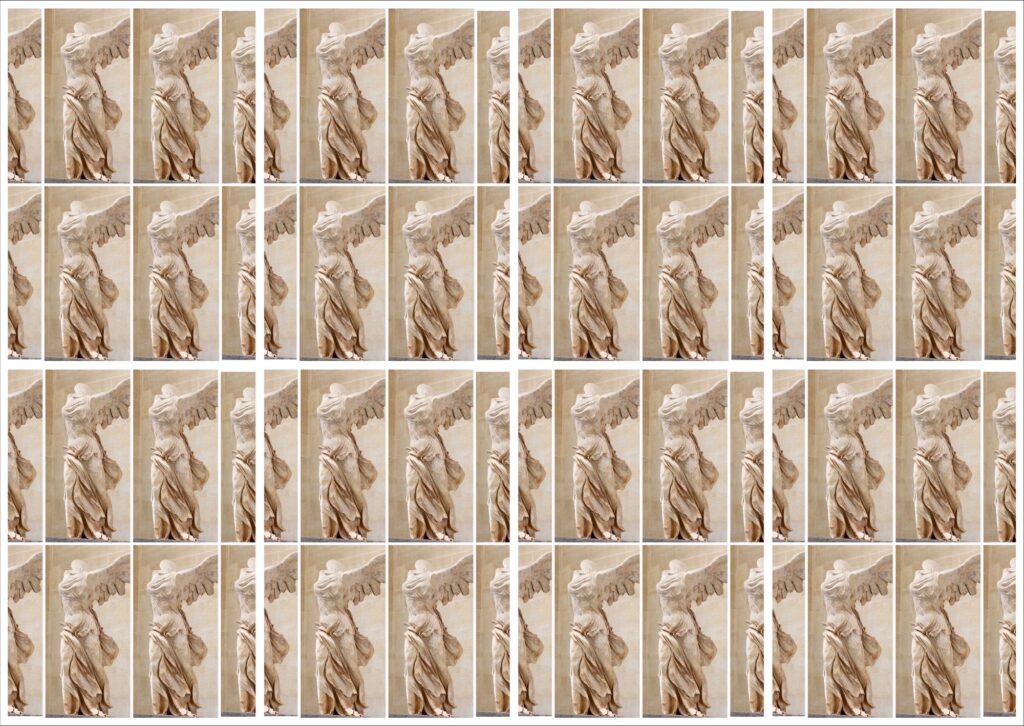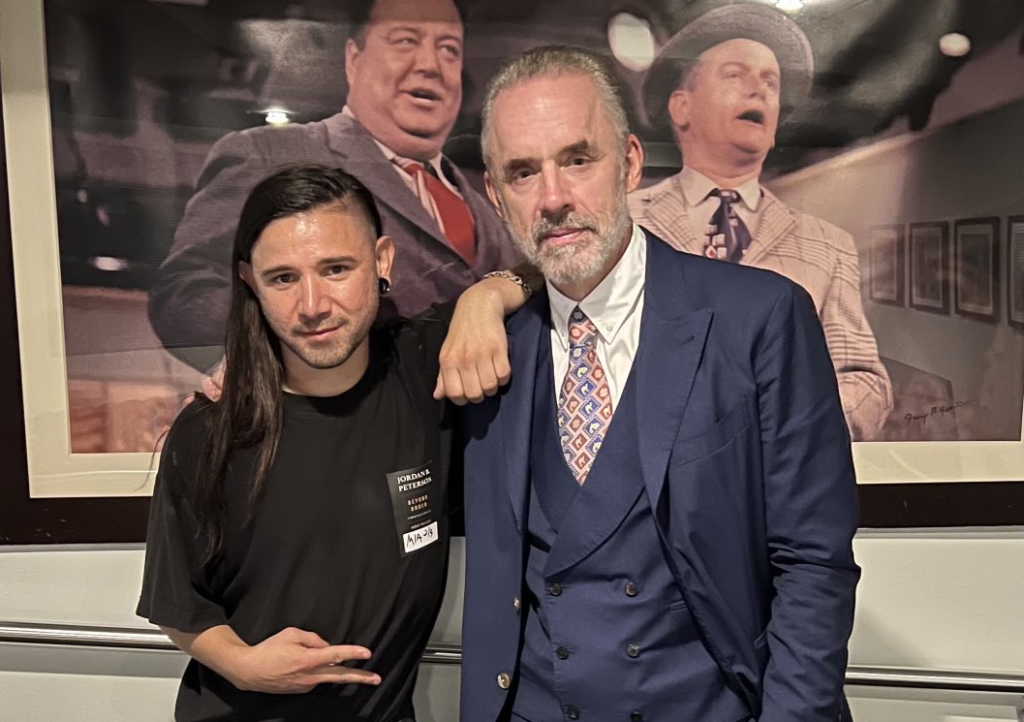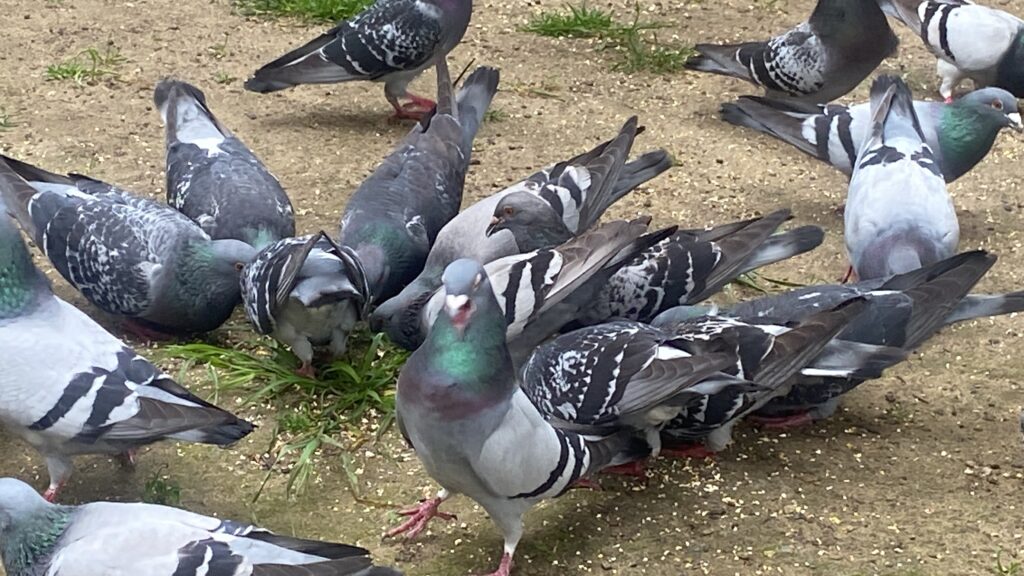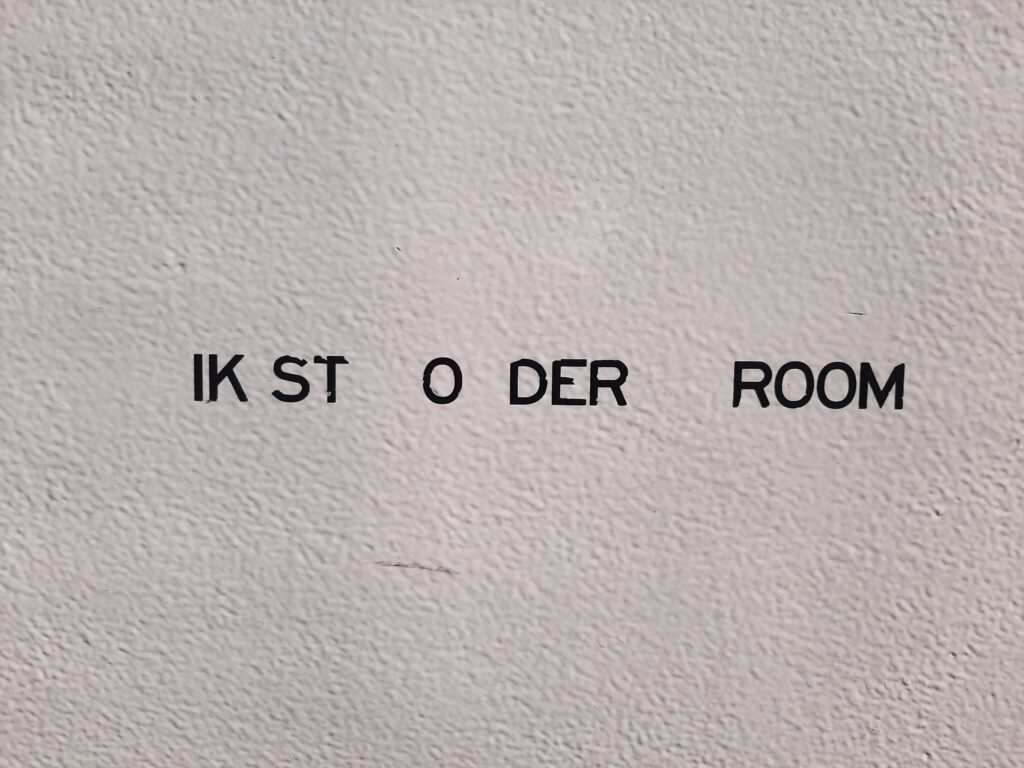
Actual Person, Deanna Havas
By Harry Burke
Babelsprech International is a series created through the cooperation of Babelsprech and Hilda Magazine, in partnership with the American online magazine Full Stop, as well as Samplekanon.
The series was initiated by Babelsprech, a two-year-old project striving to connect the German, Swiss, and Austrian poetry scenes, in order to move these respective scenes and their histories closer to each other for a younger generation. With this collection of essays, Babelsprech has decided to leave the German speaking sphere to work towards the possibility of a world society of poets.
Cooperating with three other online, international literature magazines, each addressing its own distinct audience and community, the series will introduce the contemporary poetry scenes of various countries to each other. Babelsprech International presents a series of essays by poets themselves, providing insight on disparate poetic communities and histories from an inside perspective.
This is Full Stop’s first original contribution to the series.
* * *
In 1972, Marjorie Perloff, preparing a review on poetry of the preceding two years, read Ron Padgett and Dave Shapiro’s 1970 Anthology of New York Poets, which included a section of Frank O’Hara’s poetry. O’Hara’s work had been largely marginalized, and as late as 1979 was labelled as “late Victorian camp” by the Times Literary Supplement, despite its “excellent personal taste” and value as entertainment. Perloff, however, saw differently, and in 1977 published Frank O’Hara: Poet Among Painters, her attempt to reposition O’Hara as a serious poet. What O’Hara’s critics didn’t realize, she argued, was the extent to which O’Hara broke from the Symbolist tradition of poetry. O’Hara did not use words in the way they had become established as tools in modern poetry — that is, as signs to represent his feelings — but infused his feelings with the material of his world and his poetry, co-authoring all three in a simultaneous writing of the present. The words become the feelings.
Perloff’s reading of O’Hara is prescient, and traces a root for much contemporary poetry that has followed. What Perloff described was a movement from an idea of language as representing a pre-existing meaning to an idea of language that, in being spoken, creates meaning through a negotiation with other pre-existing objects and bodies. “I am stuck in traffic in a taxicab / which is typical / and not just of modern life,” opens “Song” from 1960. Being stuck in traffic doesn’t precede or inspire the poem, it is instead part of the poem. It is a poetics of expression, of constructing the moment in the moment; I speak therefore stuff is.
What this sounds similar to, retroactively reading, are Judith Butler’s ideas of the performative self. Butler argues that the embodied self is constituted through its actions and speech acts. It does not exist outside of the body (or language) and is always in the process of being formed. As she writes in Bodies That Matter, “within speech act theory, a performative is that discursive practice that enacts or produces that which it names.” Poetry: same. However, this materialization of the self does not happen on its own, but in constant (often violent) negotiation with power. In her words, this forms “an original complicity of power in the formation of the ‘I.’”
In this text I’d like to chart some implications surrounding the formation of the “I” in contemporary poetry. The series it is a part of (Babelsprech International) reports on a number of scenes of poets tied to certain geographical locations. The history of poetry has often developed through a fascination with the “scene” or the “school” as the unit of poetry’s emergence. We can only look at “alt lit” today to see the types of self-branding and subsequent disaffiliations that can give a movement mainstream media attention. Yet at a moment when geographic locality is being challenged by the new maps of computing technologies and social media, and the sorts of new exchanges, conversations and fluidities that these allow, it makes sense not to delineate any overarching scene too hastily. Instead I’d like to focus on how some new complicities of power — the industrial internet, social media, new logics of commodification — challenge the self that writes the poem, and how this self might challenge complicities of power in return.
A note before going anywhere else: the location of the self (or selves) in this essay is not the global network. Global internet use is expanding (slowly) but many of the poetries we celebrate still emanate from major financial centers of the last century, and a majority of its proponents have college degrees. If we’re to say the geographical focus of this essay is “the Internet,” we basically mean a cultural axis between London, New York, and Los Angeles.
Digital Native Agents
Semiotext(e), today top of the hegemony when it comes to radical publishing, was founded in 1974 at Columbia University by Sylvère Lotringer. In 1990, Chris Kraus initiated a new series of books by mostly female American fiction writers under the title Native Agents (the arm of the house that had been importing continental philosophy into the US was Foreign Agents). Through Native Agents, Semiotext(e) published writers such as Kathy Acker, Eileen Myles, Lynne Tillman, David Rattray, and Kraus herself.
Native Agents is celebrated for its promotion of a personal, anti-memoiristic, “public I,” a highly subjective narrative voice that became both the series’ engine and allure. Functioning in similar territory to the performativity we can read into Perloff’s study of O’Hara’s work, the series developed a progressive, feminist, first-person fiction, in which the fiction was as much the author’s own self as any other narrative device. As Kraus writes in her 1997 novel I Love Dick, “I think ok, that’s right, there’s no fixed point of the self but it exists & by writing you can somehow chart that movement.” What emerged from this was a radical reconstruction of agency.
It is today increasingly impossible to avoid a first-person confessional voice, across fiction, criticism, and poetry. As Lucia Pietroiusti has written in the anthology You Are Here: Art After the Internet, “in the past few years, I have developed an increasing difficulty in writing in a tone that is not at once confessional and citational,” an observation she attributes to, “a form of performance of the self — postulated, in part, by the multiplicity of social media, the multiplication of technological devices through which they are made accessible, and the multiple self-fashionings that ensue.” If the radically subjective voice has become a dominant voice in our writing, we should question the motivations in culture that have led us to this place, the technologies of authorship and dissemination that have facilitated it, and how its popularization affects the category of the radical. In short: am “I” still here?
“I Wish I Was Dead Everyday and Thats Not a Bad Thing If You Think of it As A Longing for A Fresh Rebirth” writes Deanna Havas, a poet and artist based in New York, in the opening line to Actual Person. Actual Person is a poem (dated February 2014) that spans 17 pages of a PDF hosted on her website, due to be published in print by Social Malpractice this summer. But Actual Person is also Havas herself, or at least it attempts to be. Its cover features a self-portrait, a heavily made up disembodied head, idealized and photoshopped to look like a cyborg or a generic software or cosmetics ad. The mascara matches the color of the patterned background, over it are lazily applied Photoshop airbrushes, the head has no hair. The cover image doesn’t reach the edges of the PDF page, but it’s of dimensions that might be shared easily.
The poem itself is constructed of standalone statements that are collated into an almost unpunctuated list, statements like “I work at Best Buy,” “I Hate Outdated Software” and “Damn, I really loved my peppermint chap too . . . *sigh*, it was a love so perfect, so true :).” The order of the statements seems almost random or illogical, like a flow (or an algorithm). What maintains consistency over the 17 pages is the constant return to the “I.” Although some lines don’t include it (“Are you a creative person? They say that creative people are also the most unethical people. What do you say?”), the majority of lines begin with I, and it acts as the punctum which gives the poem the rhythm and consistency to wander in all sorts of zany, internet-inflected directions. The logic of the composition is: anything can happen as long as it’s anchored in the I.
Every line in the poem is sourced from one of three websites: The Experience Project, Whisper and Reddit AMA (ask me anything). These were copied into a document in no particular order, until the author felt like it was around the right length for a poem. That the poem is sourced from other people’s statements, as though created by a bot trawling certain parts of the web, of course doesn’t mean that Havas’s self, her “I,” is any less real or sincere than the type of self a romantic like O’Hara or Wordsworth (or a non-romantic like Acker, for that matter) would have constructed in their poetry. Actual Person is a statement of identity both despite and because of its body of humorous, borrowed statements.
When we use language, we always use borrowed language. By utilizing this quality to the max, Havas is highlighting the sorts of pressures put on our use of language, and by extension our formation of identity, when increasingly wider aspects of life are subjected to financial logic. What happens when we never own our language? The confessions on Whisper function to drive advertising revenue as well as absolve the confessor; its algorithm favors statements of a certain length that are structured around the “I.” By not eschewing this language in favor of any more “original” speech, Havas is constituting herself both in relation to, and against, these mediating technological and political factors. If statements exist, take them. The poem is aware of its complicity.
Neither identity nor poetry is original, but is built out of histories of pre-existing linguistic structures and conventions (“’picking up other people’s ideas like dead birds’ can be replaced by an uncomfortable awareness that all writing is derivative,” as Denise Riley writes in her essay “Lyric Selves”). No statement is ever fully your own (although statements are still in danger of being appropriated or misused). What makes our present moment slightly different from before is that these histories, structures, and conventions are available to us through the screens at our fingertips. What makes it complicated is the extent to which these building blocks of self are either motivated by or indeed are the real currency of commercial interests.

l=a=n=g=u=a=g=e.htmlx
With language multiplying in the 0.4 seconds of a web search, located within a coded architecture that is its own form of language (Java, Python, PHP) we might imagine the poet (human or bot) entering a new golden age, unable to avoid its own poetry. This is the democratic dream of much discourse over the last twenty years, from Nicolas Bourriaud’s assertion that the DJ is the new artistic figure par excellence, repurposing and remixing as a creative praxis, to Kenneth Goldsmith’s claims that the poet now need only reframe text from the archives of the internet and the media industry. So much has been written that there is nothing new left to write. At the same time, every act is an act of writing, as it’s an act of articulation in a predominantly textual environment. Sentiments such as these have been echoed in recent exhibitions such as Poetry Will Be Made By All! at LUMA Foundation in Zurich, curated by Goldsmith and Hans Ulrich Obrist, which professed with YouTube-like zeal that anyone can today write poetry.
The underlying mindset here is that poetry is freer than art because poems can’t be commodified in the same way an art object can be. It can’t be sold in a market for a quantifiable and easily inflated sum of money. Yet Joseph Beuys recognized even before the invention of the World Wide Web that “culture and economy are the same thing,” and theorists of “immaterial labor” have argued that it is our interactions and affects that produce the capital relation as much as the labor that creates more tangible commodities. Immaterial workers (artists, tweeters, anyone) are in the first place producers of subjectivity. What’s more, this subjectivity is the commodity sold by the company we do our private messaging or recipe searches through. Richard Serra and Carlota Fay Schoolman in their 1973 video Television Delivers People state that “you are the product of television.” This is still the case after the advent of social media, and just because you can now speak back doesn’t mean you can speak against it.
It is this world that informs Actual Person, the content of which is as much molded by the pressures of maintaining one’s own value as a subject (“I Want You To Rate My Body”) as it is an attempt to escape it. If this is brought to our attention by Havas’s process of sampling text found on the internet, then it is nonetheless also a wider condition of poetic production within these locales or utilizing these technologies today. Mira Gonzalez, a poet based in Los Angeles, noted in an interview with Shiela Heti that “without having Twitter as a way to promote my writing I don’t think I would have gotten published in like 95% of the places I’ve been published.” Gonzalez’s Twitter (she uses two accounts, @miragonz and @miraunedited) has been described as “a kind of poetry in and of its self,” and in the interview with Heti she states that she views Twitter as an art form as much as poetry or fiction. These statements belie the understanding that poetry has become as implicated in the capital relation as the proprietary platforms of social media.
In Gonzalez’s poetry it is again the “I” that provides the logic of composition. In the poem “TODAY MY ALARM WENT OFF AT 12.30PM” the letter “I” begins over half the lines. Its statements are brief and factual, the expressions of a subject that remains static as the distributed experiences and emotions facilitated by an iPhone fly around them. It is the world, not the poet, which is most active in this poem: “I stayed in bed for over an hour / looked at things on my phone.” Even the past tense of “looked” rather than the present continuous of “looking” suggests a sense of being overwhelmed by the content on the phone, despite its banality. With this comes a familiar, if untraceable, anxiety: “I felt slightly anxious about nothing in particular.”
In an essay published on e-flux, “The New Way of the World, Part I: Manufacturing the Neoliberal Subject,” Pierre Dardot and Christian Laval unpick the ways the contemporary subject is constructed as an “apparatus of performance and pleasure” in relation to the general logic of the enterprise — the logic of a society where governments are enterprises, public utilities providers are enterprises, and individuals are enterprises, too. This observation isn’t a million miles away from the popular discussion of artistic producers as “brands” today; it is a way of making us both more efficient within the market, and more easily regulated by the logics of the market. The poet has the freedom to sleep until afternoon, then lie in bed some more before drinking coffee and doing drugs. However, this is a freedom that’s premised on a self-regulation that occurs in relation to a media sphere. Dardot and Laval write, “The main innovation of neoliberal technology precisely consists in directly connecting the way a person ‘is governed from without’ to the way that ‘he governs himself from within.’” The poet’s slight rebellion comes in taking drugs before the internet (we assume) sanctions it, as Gonzalez writes, “I asked a person on the internet if I should take drugs / I took drugs before the person had time to respond.” The Internet’s response in this instance is arbitrary; it’s the fact that the poet feels compelled to ask that counts.
The self in this poem is overwhelmed by the world around, but still maintains some control over it. Gonzalez turns an implied lack of performance into a different type of performance — the poem. Taking drugs in bed is not historically productive to capital, though perhaps it is if you’re using your phone, or at least perhaps it becomes so if you write a poem about it. In any case though, it is in the relationship between the self and the world that a labor relation is coded.
Havas takes the junk language of the Internet and reformulates it into an affirmation of her self as not-junk. Gonzalez shows that even an inner monologue or a tweetable thought is caught up in the same kind of power struggle. Gonzalez wants distance between herself and the world (“I want someone to pull my hair because I like the idea of someone / controlling my head without touching my head”) but in the end this is nothing more than a desire; a poetic dream. The self and the world are the same thing. The poem investigates its own conditions of production, discovering that the self that produces it is, at the same time, the self that it produces.

Mira Gonzalez
h“I”-Definition
If poetry is a form of production, what does it produce? A poem, a subject, or something more? In the 2004 essay “From Capital-Labour to Capital-Life,” Maurizio Lazzarato poses a similar question, as he charts the idea that a worker’s lifemight have become their primary form of labor. It is to similar ends that we might celebrate the migration of poetry beyond the printed page and across creative platforms such as Twitter, Tumblr, and, more recently, websites such as New Hive. If you never stop working, then perhaps you never stop writing, too. For Lazzarato, though, capital doesn’t regulate this life through its molding of the subject, at least not directly. Capitalism — embodied by the enterprise rather than the factory — creates its subjects through creating their worlds. It’s the logic of Disneyland applied to buying a candy bar at a bodega, where you don’t just buy the candy bar but also the experience, the fantasy.
If our life is our labor and all our interactions are poetry, then what does this mean for poetry? If the world is part of the subject, then the subject is also part of the world. Its language is in part controlled by that world, but it might also speak its way into new worlds. Gonzalez’s voice is caught between a sense of entrapment by structures of power around her, and an ability to refuse this power, at least in its current forms. Perhaps this is where the “I” can return as a site of genesis or resistance in contemporary poetry.
Aimee Heinemann is an artist and writer based in London whose writing, published often in blog form on her Tumblr, complicates, multiplies and diffracts the self of poetry without ever losing site of the worlds that this self is product of and speaker against. “Narcissus didn’t love his own body, he loved a body of water,” she writes in “Narcissus (Hi-Saturation).” The body of water, his reflection, is also the world that constitutes his body. We’re hyper-fluid subjects, partly located in our physical body (whatever that is), partly located in the multiple and liquid bodies that surround us. An act of self affects these worlds around us, even as our speaking language binds us to them. “The surface of the pool falls into a state of contingent subject-objecthood through the presence of Narcissus — this is a defence mechanism and a rare act of collective action on the part of the pool.”

How do we break from this relationship? Perhaps we don’t need to; or at least, this is what is suggested in Heinemann’s writing. Rather, we should recognize that these binds between self and world are already broken, splintered, and messy, even if they are at the same time violent and regulating. “There are no fixed systems but every object has an image waiting to kill it, let’s fight for both sides,” Heinemann writes. If this writing hasn’t the same use of the actual letter “I” it is still a poetics based around a conception of the self that is performative, but also performed, and trying to find a personal or collective route out of some of the pressures and prisons that structure it. “The real 9/11 is inside of you,” Heinemann writes in a different text, “becoming-animal becoming-woman becoming-faggot becoming-optical fiber becoming-server farm becoming-rubble.”
This is not so much the logic of “be the change you want to see in the world” as “become the world you want to change.” The difference is subtle but important, shifting emphasis from individual accountability to a more fractured and collective ethics. If poetry is a site of complicity with new logics of capital accumulation, mediated through the social internet and immaterial labors, it’s also the location where this alternative ethics might begin, bringing into proximity as it does the self, body, and language, as well as other selves, bodies, and languages, suggesting potential new combinations of these for the future.
Denise Riley, in “Lyric Selves,” asks the question: “are you speaking language, or is language speaking you?” in an attempt to plot the position of the self in lyric poetry. This question is not a straightforward binary, however, for clearly both sides occur. Yet it is a question that’s still relevant to poetry today, as it emphasizes the complicity of poetry with various structures of power that exist around the speaking voice. What the writing of Havas, Gonzalez and Heinemann suggests, as only three particular examples, is that that this question might not only focus on language, but also on bodies and technologies that are also performed in the moment of speaking. Are you speaking language, technology, bodies, or are language-technology-bodies speaking you?
In this sense it is still around the “I” that these complicities of power materialize. Yet this can be a good thing for poetry; it means this “I” can be a site of agency and invention, even if at the same time it is trapped, and made to feel alone. The more it might embrace other aspects of language, technology, and bodies, the more this “I” might shape worlds and not just a self.
Harry Burke is a writer based in London. http://harryburke.tv.
